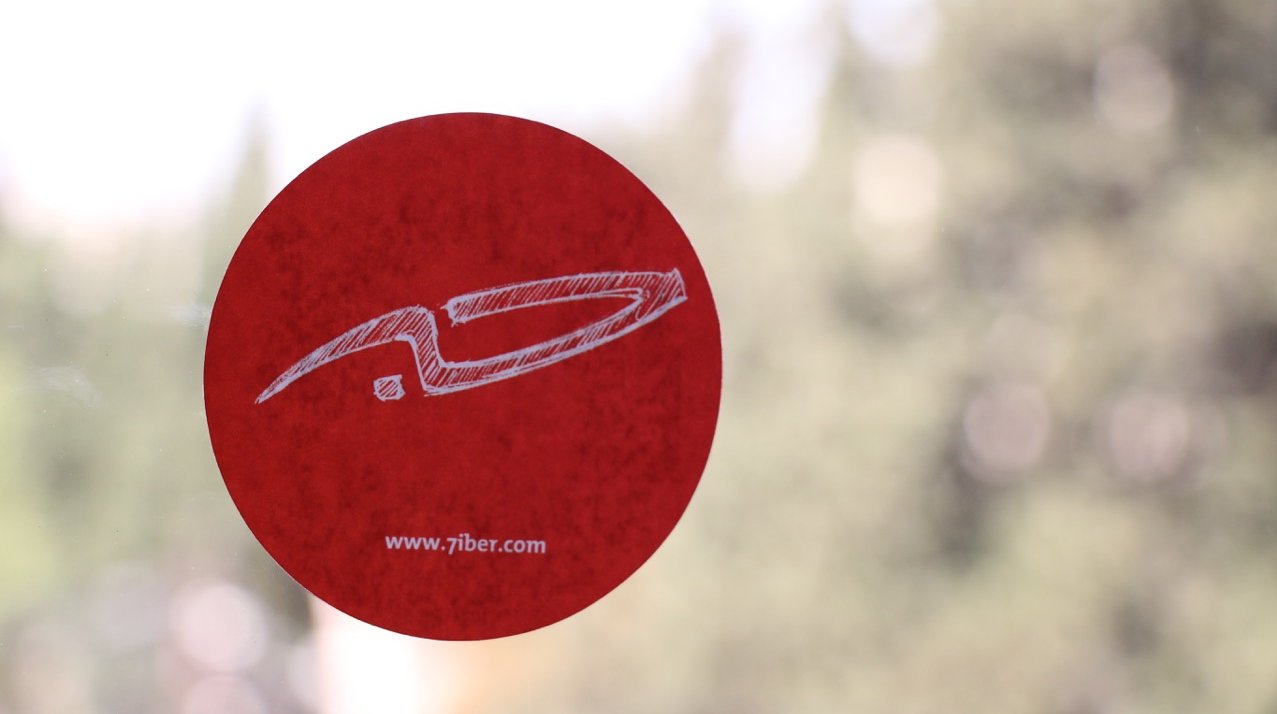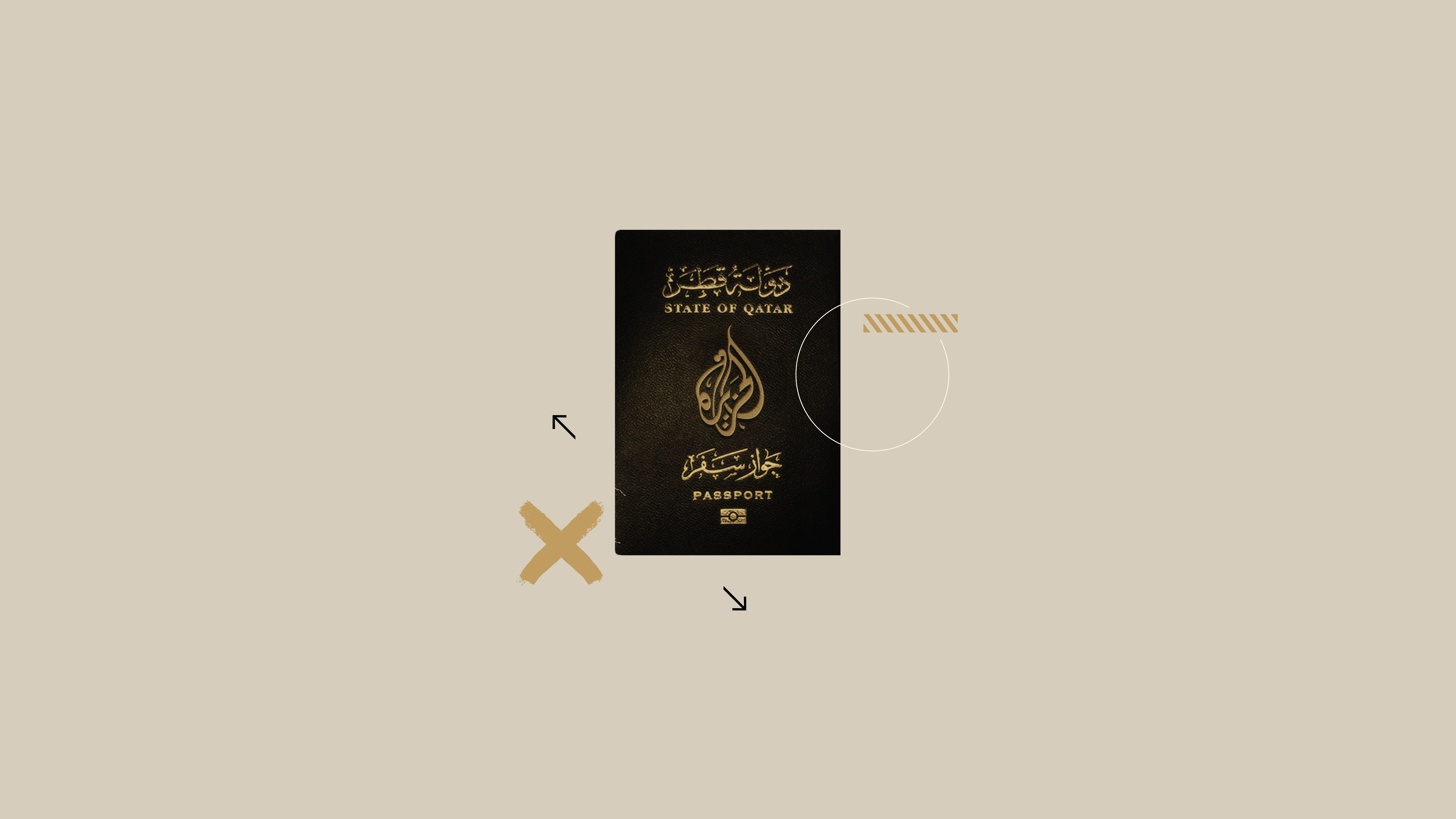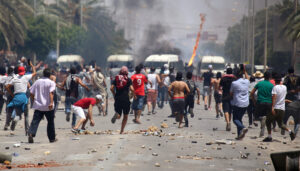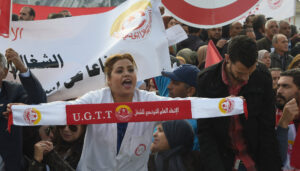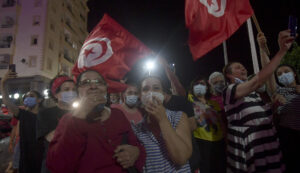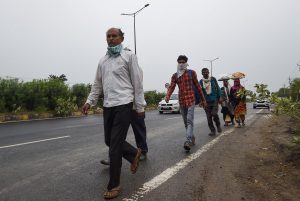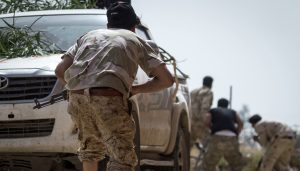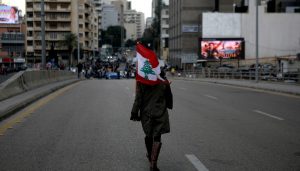Ten years have passed since the launch of 7iber in May 2007, and five years have passed since the transformation of 7iber from a “citizen media” platform, run by a group of volunteers, to a professional magazine and media organisation. 7iber is now comprised of a team of 14 members, in addition to a wide circle of collaborators: writers, journalists, photographers, and specialists in various fields who regularly contribute in-depth journalistic pieces or offer critical analyses and theses challenging the dominant rhetoric and creating new spaces for public conversation.
When we launched 7iber, we did not have a clear vision of the shape this project would take. But we were motivated by a central idea that has not changed throughout these ten years: that it is essential for people to wrest their right to narrate their own stories, express their thoughts, and question those in positions of power.
7iber emerged from the Jordanian and regional blogging community when the Arab blogosphere was at its peak, at a time when the internet offered an unprecedented space to challenge the hegemony of mass media controlled by Arab regimes or big private capital allied with these regimes. We were a part of an Arab community of bloggers, techies, and open-source developers, most of whom were young men and women in their early twenties who share a deep belief in freedom of expression and the right to access information and knowledge openly.
7iber’s slogan,“What’s your story?,” was an open invitation to share articles, experiences, and opinions. But this was not enough. We organized workshops focused on blogging and web content production. We held meetups centered on writing, photography, and storytelling—activities which had a substantial role in building a community of writers and readers and pushing forward the momentum and quality of our website’s content.
While 7iber’s journey has witnessed numerous crossroads and junctures, the most remarkable till now has been 2011, the year that witnessed Arab populations’ uprisings against dictatorial and oppressive regimes, calling for freedom, dignity, and justice. Perhaps that year was the point at which our idea, of which we had dreamed since the beginning, was realized. We received and published articles, testimonies, and stories that challenged dominant narratives, broke the totems Arab regimes had manufactured in the minds of their citizens, and offered new voices stretching the spaces of criticism and dialogue. These conversations were not restricted to the digital sphere. For in 2011 we began to organize monthly discussion events that we called the “Hashtag Debates,” in which we tackled issues such as the constitutional monarchy and the role of the King in the parliamentary system, the interference of the Jordanian General Intelligence Directorate in political life, economic policies and public debt, and a myriad of other topics that came to prominence in light of the popular movement calling for reforms in Jordan.
What the Arab uprisings have come to is a well-known and painful story that need not be retold here. Yet, perhaps a friend’s Facebook post on the New Year Eve of December 31st of 2011 best describes it: “The people want 2011 to stay.”
But 2011 was gone and its distinctive momentum dissipated. We at 7iber found ourselves faced with a question: What is our role now? Do we remain a space of citizen journalism at a time when Facebook has become the most widespread and easiest avenue for expressing opinions and positions? And how do we deal with the general frustration and disillusion that hit many of 7iber’s young contributors, who are part of the Arab Spring populace that was now afflicted with despair or, worse, oppression and official persecution?
We found that we could not continue as a “platform” that merely reflects the public temperament. We found that what we need, and can, offer is creative, courageous, in-depth journalistic content relying on research, investigation, and accuracy. One that emanates from the primary values we believe in, namely justice, accountability, human rights, and plurality.
From there, the year 2012 was our point of transformation into a journalistic magazine— and we have differed a lot on whether the term “magazine” reflects 7iber’s new form. We agreed that we were not a website reporting quick daily news, but rather a website that seeks to research, interpret, and analyze the story behind the news, in addition to covering issues and stories that might slip under the radar of current events, especially those which touch social groups absent, or absented, from the mainstream media.
In the midst of that transformation, and despite what culminated after the Arab uprisings, we assumed that the big strides achieved in the domain of freedom of expression in 2011 cannot be retracted no matter what happens. Of course, soon afterwards, we discovered how wrong we were.
The year 2012 saw a return to restricting public freedoms in Jordan, as more than 140 activists who participated in demonstrations and protests were arrested with charges such as “lèse-majesté” or “undermining the regime”. In September 2012, amendments to the Press and Publications Law were ratified, imposing a mandatory licensing on websites. And in June of 2013, more than 200 unlicensed websites, including 7iber, were blocked in Jordan. We tried to circumnavigate the block through alternative domains, but these domains were blocked three times between the months of June and August of 2014 by the Jordanian Media Commission. The Commission took 7iber to court, under the charge of “managing an unlicensed media organization,” for which we had to pay a fine. This left us facing a new question: Do we dedicate all our resources towards resisting this law, which represents a form of censorship and media restriction, or do we find a way to work within this law—while opposing it—for the sake of achieving our priority of publishing journalistic content and making it available to our audience?
We opted for the second choice and obtained a license from the Jordanian Media Commission at the end of 2014.
Sustainability and Building a New Model of Independent Media
How do we fund a media project of this kind? And how do we develop a sustainable model that secures continuity and growth? From the beginning, we found that the traditional advertising model will not succeed by itself in funding this project, as the current local advertising scene is dominated by an emphasis on high traffic numbers. And while we always strive to expand our readership, we did not want traffic to be the main driver of our editorial choices.
Before 2012, 7iber’s income was primarily reliant on executing projects based on citizen media skills training. At the time, 7iber’s six team members were dependent on other primary sources of income. In 2012, we began applying to projects and grants to fund the creation of a full-time team of professionals dedicated to producing in-depth journalistic content. Our policy towards projects and grants has been, and continues to be, conditional on our uncompromising editorial independence and our refusal to allow interference in content from any and all parties.
Still, in the past few years, we have come to realize the necessity of developing a different model capable of ensuring the continuity of this media project. Therefore, we instituted a new strategy for 7iber’s upcoming years, one which includes creating sources of independent income. The challenge of securing funding sources for professional media and journalism organizations in the internet age is a global one, faced by media organizations everywhere, whether they are traditional or emerging. But this challenge might be harder in our Arab region, as the scene is dominated by media projects funded by governments or big capital.
Quality journalism is expensive. It takes time to do in-depth reporting, data gathering, good writing, editing, fact-checking, and proofing, in addition to visual and multimedia storytelling. Such labor necessitates a journalist’s collaboration with the photographer, designer, developer, and editor. Who pays for this cost?
There are no easy or ready answers for these questions. We are in the midst of experimenting with various ideas to create a new and different model, which we will share with our readers during upcoming months. One such idea is to rely on parallel activities drawn from the expertise we have developed during the last ten years in trainings and consultations, multimedia production, web development services for media projects, and other undertakings.
We are not alone in facing this challenge, and we consider ourselves lucky to be part of an Arab network of independent media projects. This network is brought together by shared values and an endeavor to develop a new model of in-depth and high quality journalism. Within our community, we seek to learn from each other and to reflect together on the challenges we face in our work today, in addition to cultivating collaborations in content production, business development, and other avenues.
In the shadow of this reality, continuing to practice critical and independent journalism is harder than ever. Yet, this reality is what makes such a practice a necessity rather than a luxury.
Today, the reality of our region appears bleak, as Arab regimes excel in exploiting terrorism as a justification to reinforce their monopoly of power and capital, and to continue to restrict freedoms and violate basic rights of their citizens. These regimes tell their citizens that freedoms and security are mutually exclusive, and that calls for justice, freedom, and dignity undermine stability. These regimes claim to oppose hate speech while sustaining it, instigating people’s fear of each other to secure the continuity and monopoly of their rule.
In the shadow of this reality, continuing to practice critical and independent journalism is harder than ever. Yet, this reality is what makes such a practice a necessity rather than a luxury. And this reality is what drives us to continue working, to search for stories and ask questions, to insist on creating new spaces, and to build the foundation that makes such work possible.
Thank you to all who, throughout these years, supported 7iber by writing, reading, sharing their expertise, commenting, participating in discussions or activities, or believing in this idea. Thank you to all the organizations that have supported or collaborated with us in various projects. Thank you to all the cultural spaces that opened their doors to our activities. Thank you to 7iber’s extended family.
During the next few months, we will celebrate our 10th anniversary through various projects and activities. We are very excited to share these happenings with you when the time comes.
